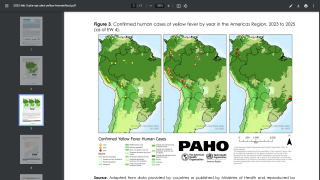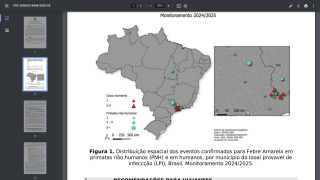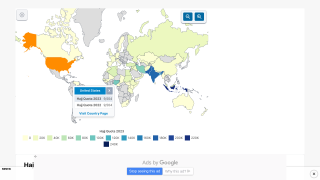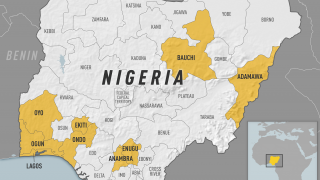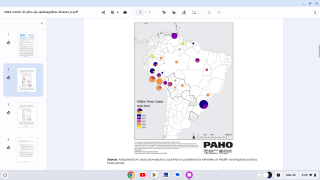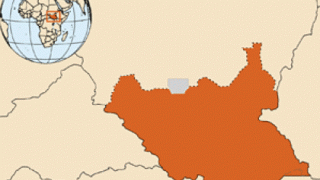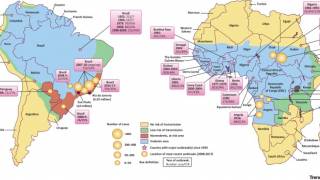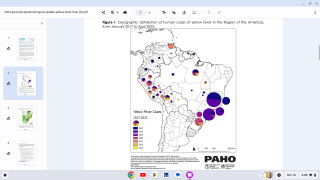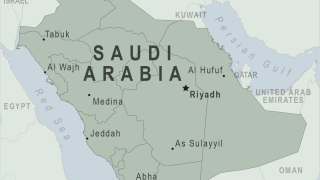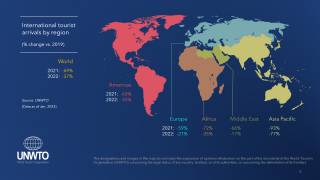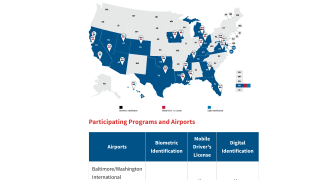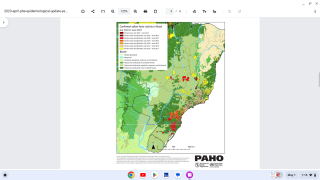Global Certificate System Launches in June 2023

The World Health Organization (WHO) and European Commission (EC) today announced a digital health partnership launching in June 2023.
Confirmed on June 5, 2023, the WHO will take up the European Union (EU) digital COVID-19 certification process to establish a global system that will help facilitate worldwide mobility and protect people from ongoing and future health threats, including pandemics.
This is the first building block of the WHO Global Digital Health Certification Network (GDHCN) that will develop a wide range of digital products to deliver better health for all.
"Building on the EU's highly successful digital certification network, the WHO aims to offer Member States access to an open-source digital health tool, which is based on the principles of equity, innovation, transparency, and data protection and privacy," said Dr. Tedros Adhanom Ghebreyesus, WHO Director-General, in a related media statement.
"New digital health products in development aim to help people everywhere receive quality health services quickly and more effectively."
Based on the EU Global Health Strategy and WHO Global strategy on digital health, the initiative follows the November 30, 2022, agreement between Stella Kyriakides, EC Commissioner for Health and Food Safety, and Dr. Tedros.
This partnership will include close collaboration in developing, managing, and implementing the WHO GDHCN system, benefitting from the EC's ample technical expertise.
The first step is to ensure that the current EU digital certificates continue to function effectively.
"With 80 countries and territories connected to the EU Digital COVID-19 Certificate, the EU has set a global standard," added Thierry Breton, Commissioner for Internal Market.
"The EU certificate has not only been an important tool in our fight against the pandemic but has also facilitated international travel and tourism."
"I am pleased that the WHO will build on the privacy-preserving principles and cutting-edge technology of the EU certificate to create a global tool against future pandemics,"
To facilitate free movement within its borders, the EU swiftly established interoperable COVID-19 certificates (entitled 'EU Digital COVID-19 Certificate' or 'EU DCC').
Based on open-source technologies and standards, it allowed for the connection of non-EU countries that issue certificates according to EU DCC specifications, becoming the most widely used solution worldwide.
The WHO is also establishing a global digital health certification network that builds upon the solid foundations of the EU DCC framework, principles, and open technologies.
With this collaboration, the WHO will facilitate this process globally, under its structure, to allow the world to benefit from the convergence of digital certificates.
This includes standard-setting and validation of digital signatures to prevent fraud.
In doing so, WHO will not have access to any underlying personal data, which would continue to be the exclusive domain of governments.
The first building block of the global WHO system becomes operational in June 2023 and aims to be progressively developed in the coming months.
This partnership will work to technically develop the WHO system with a staged approach to cover additional use cases, which may include, for example, the digitization of the International Certificate of Vaccination or Prophylaxis, often known as the yellow card, used to confirm yellow fever and polio vaccinations.
Furthermore, the WHO and the EC will work together to encourage maximum global uptake and participation. Particular attention will be paid to equitable opportunities for the participation of those most in need: low and middle-income countries.
Our Trust Standards: Medical Advisory Committee




